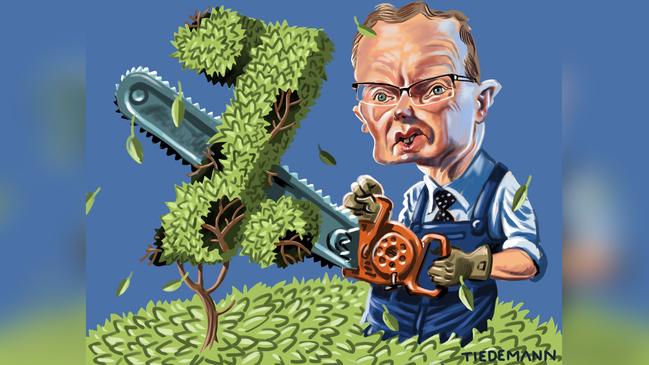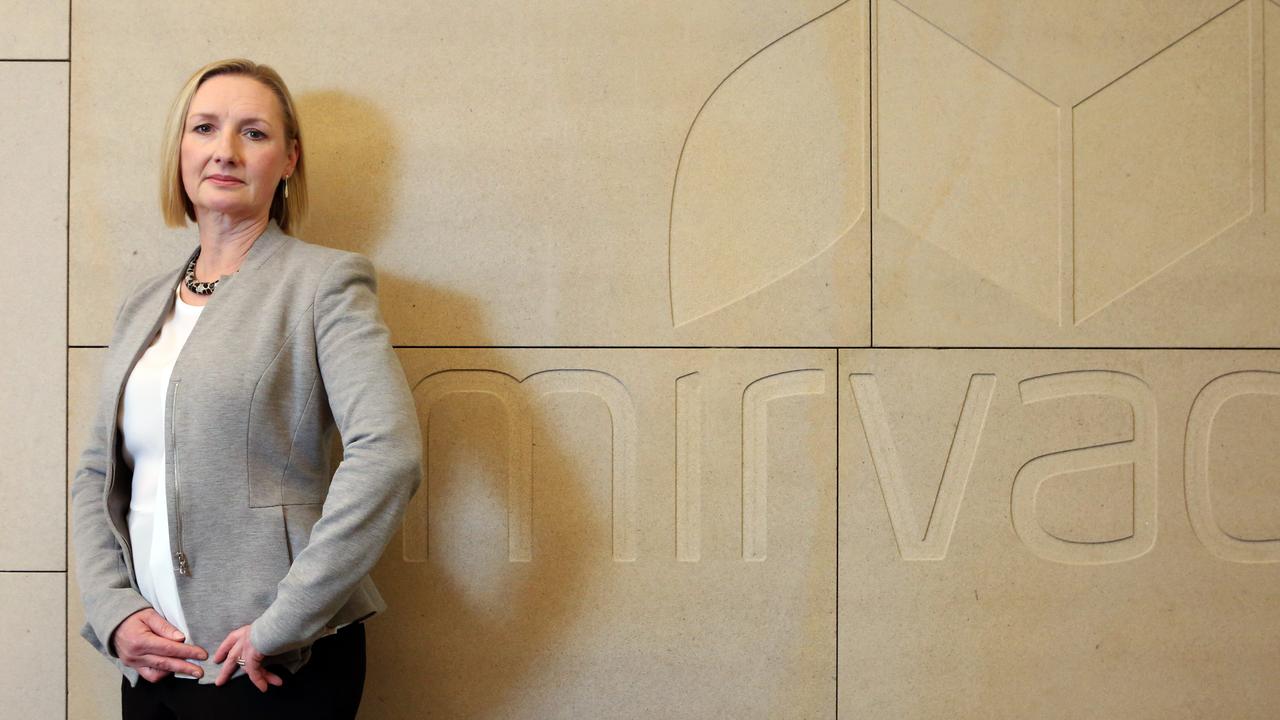
They are unanimous in rejecting the value of another rate cut at this stage and in response to the virus, saying lack of funding is not the issue.
Businesses and economists are almost unanimous in questioning the value of an RBA cut from a record low 0.75 per cent.
Harvey Norman’s Gerry Harvey said: “We are watching the (coronavirus) issue very closely both here and in our Singapore and Malaysian offices but so far there are no issues to report.”
Speaking from his horse stud, Harvey cautioned that it was too early to say that nothing would happen, but said “the media has overplayed the issue”.
Financial markets believe a rate cut is certain and, when the Japanese central bank injected more cash into its market on Monday, coupled with action from the Chinese central bank, stock prices rallied from their lows of down 3.03 per cent but still finished the day down 0.8 per cent, to bring the fall from February record highs to 10.8 per cent.
UniSuper investment chief John Pearce said he was watching the US closely and if in two weeks there was no significant worsening of the spread of the coronavirus in the US then he would be back in the market buying with his ears pinned back thinking the market has bottomed.
There is still some water to flow under the bridge.
UTS’s Warren Hogan said “it was way too early for the RBA to take aim”.
He, like others, thinks the RBA should use Tuesday’s statement to talk up future action but for the bank to sit on its hands.
NAB’s Alan Oster was expecting a rate cut in February but he has a more bearish view on the Australian economy than the RBA. The RBA was expecting the economy to grow by 2.8 per cent through this year while Oster is looking for 1.4 per cent growth.
The expectation is the RBA might be finally revising down its estimates as some economists question its communication techniques.
Outside the known problem spots like universities and tourism, business says it is still too early to tell the impact of the virus except that the expectation is negative.
Wesfarmers chairman Michael Chaney said “what is being done about the virus will have a big effect on the economy” and as Australia heads into winter, raising danger levels, the northern hemisphere is going to summer.
UniSuper’s Pearce said while Australian price-earnings multiples were high, valuations were not extreme when factored against record low interest rates.
If financial market turmoil continues to be driven by more bad news on the virus, particularly in the US, it will start to raise questions about the likes of Virgin, with high debt levels of $5.1bn and gearing of 51.3 per cent.
The sector most at risk is the housing market with $1.8 trillion in debt and leverage of 200 per cent, which according to UBS analyst John Mott is a global high. Combined with a slowing economy, the fallout would be most profound in the small business sector that relies on property debt.
Any RBA rate cut would obviously hurt bank profits by cutting net interest margins.
Business leaders talk of isolated problems like suppliers having to drive around quarantined provinces in China to load freight planes. The concern is not so much the disease as to what is being done to stop it spreading.
As more companies shut down international travel, airlines and tourist operators are telling staff to take leave, then shorter working weeks, then unpaid leave and then cutting numbers. As this happens the economy will be hit hard.
Former Productivity Commission boss Peter Harris says the issue is lack of confidence and the government needs to do things to get people spending by putting money in the hands of those who will spend.
This includes measures like rental support, an earned income tax credit for those on low income and increased apprenticeships.
There are concerns about deal flow with one investment banker saying “to conclude deals people have to travel and, if they can’t, deal flow may be affected”.
Pact Group’s Ruffy Geminder said “it was still too early to tell, we are still in the middle of the river”.
Milking prices
In 2017 former Murray Goulburn boss Gary Helou was “hung” for promising a $6-a-kilogram farmgate price for milk when the prevailing price was $5.60, but today Bega is paying as much as $8.20 to its farmers as competition, strong global prices and the drought raise prices.
What looks at first glance a boon to farmers quickly falls away when you factor in the price paid for feed and water. The reality is margins are squeezed along the supply chain in the dairy industry.
After an embarrassing restatement of prior-year earnings, Bega on Monday reported a 12 per cent fall in earnings before interest and tax to $17.7m on a 14 per cent increase in revenues to $741m.
The good news is after spending $460m to buy Mondelez local businesses including Vegemite and Peanut Butter there is actually growth in the categories, which account for about 25 per cent of group earnings. The plan is to move Bega from being a food service provider to being a business-to-consumer company.
Bega, which is one of the providers to the now Mengniu-controlled Bellamy’s from its Tatura plant in Victoria, exports primarily through its customers but Japan is its biggest export market.
It’s tough on the farm and the coronavirus isn’t helping confidence, but so far it has caused no “material” supply chain issues.
Ruffy’s circular move
Pact Group chair Ruffy Geminder has committed to spend $500m in the “circular” economy over the next five years as part of the packaging group’s commitment to reduce plastics.
He made the pledge at the government’s National Plastics conference in Canberra after recently signing a $30m investment in a deal with Cleanaway and Asahi to recycle 28,000 tonnes, or one billion bottles, a year to turn them into pellets for recycling.
Several companies made commitments to reducing waste.








Australian business leaders are bracing for more bad news as the coronavirus spreads through the globe and as the Reserve Bank of Australia (RBA) is poised to cut interest rates on Tuesday to prevent a rally in the dollar after the expected US Fed rate cuts later this month.